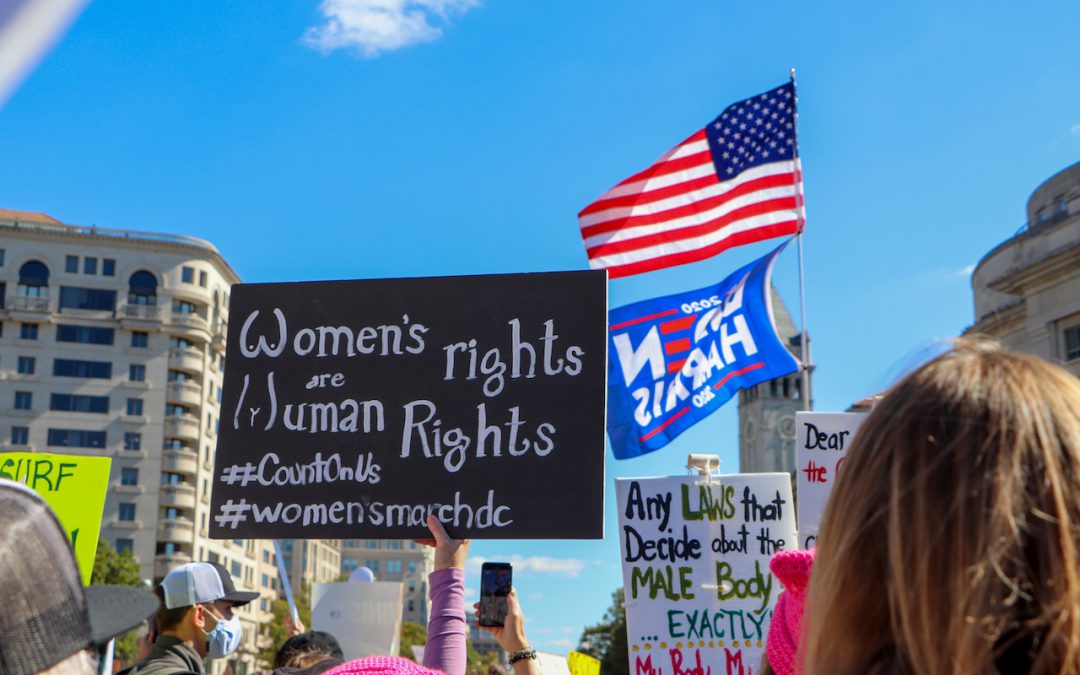WASHINGTON — On Saturday, thousands marched through D.C. during a pandemic, for the fourth annual Women’s March. With 438 #CountOnUs marches taking place across the country, the Women’s March garnered in-person support from tens of thousands of protesters.
The Women’s March has taken place every year since the inauguration of President Donald Trump, and because this year is an election year, the focus was on voter mobilization.
But, amidst widespread political unrest in the ongoing racial justice movement, and Trump’s nomination of conservative Judge Amy Coney Barrett to the Supreme Court, the march emphasized intersectionality. There was increased awareness around the urgency of challenges Black women, immigrant women and indigenous women face in the United States.
Nee Nee Taylor, a lead organizer with Black Lives Matter D.C., was a featured speaker at the event. She stressed the importance of recognizing that while D.C. may be a hub of national organizing, it is also home to people who experience injustice on the local level.
“There are more than 700,000 people living in D.C., of whom 47% are Black,” Taylor said.
“When national organizations ignore the knowledge, needs and desires of people who live here, you are playing into a larger, colonial framework. Help us, help us fight.”
On the official Women’s March website, there is a list of local Black-owned businesses that they encouraged participants to buy from. The Women’s March also issued a statement in support of the initiative from the Movement for Black Lives to #DefundPolice. There is a page on their site dedicated to educational resources and ways for participants to get involved.
This year’s march followed a different framework than in previous years. After a rally at Freedom Plaza, protesters marched to the National Mall for a socially distant text-a-thon to increase voter participation. Their goal was to contact more than 100,000 voters while gathered on the Mall.


Protesters gathered in Freedom Plaza on Pennsylvania Avenue at noon to hear speeches, before marching to the National Mall. Speakers included representatives from the Women’s March organization, the National Women’s Law Center, Planned Parenthood Votes and Black Lives Matter D.C. (Madison Muller/MNS)
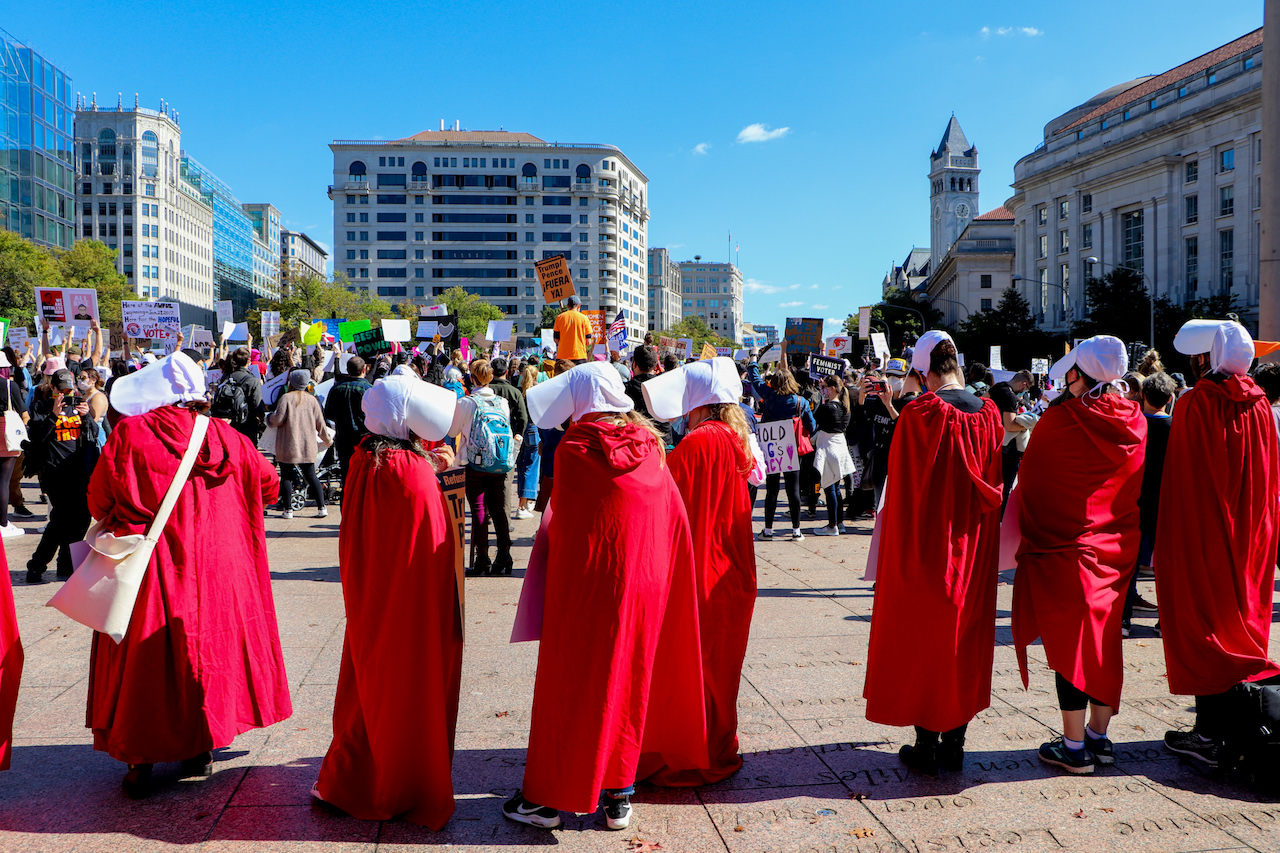
“The Handmaid’s Tale” protesters, a nod to Margaret Atwood’s dystopian novel, have been at the forefront of several actions around D.C. in recent weeks. (Madison Muller/MNS)
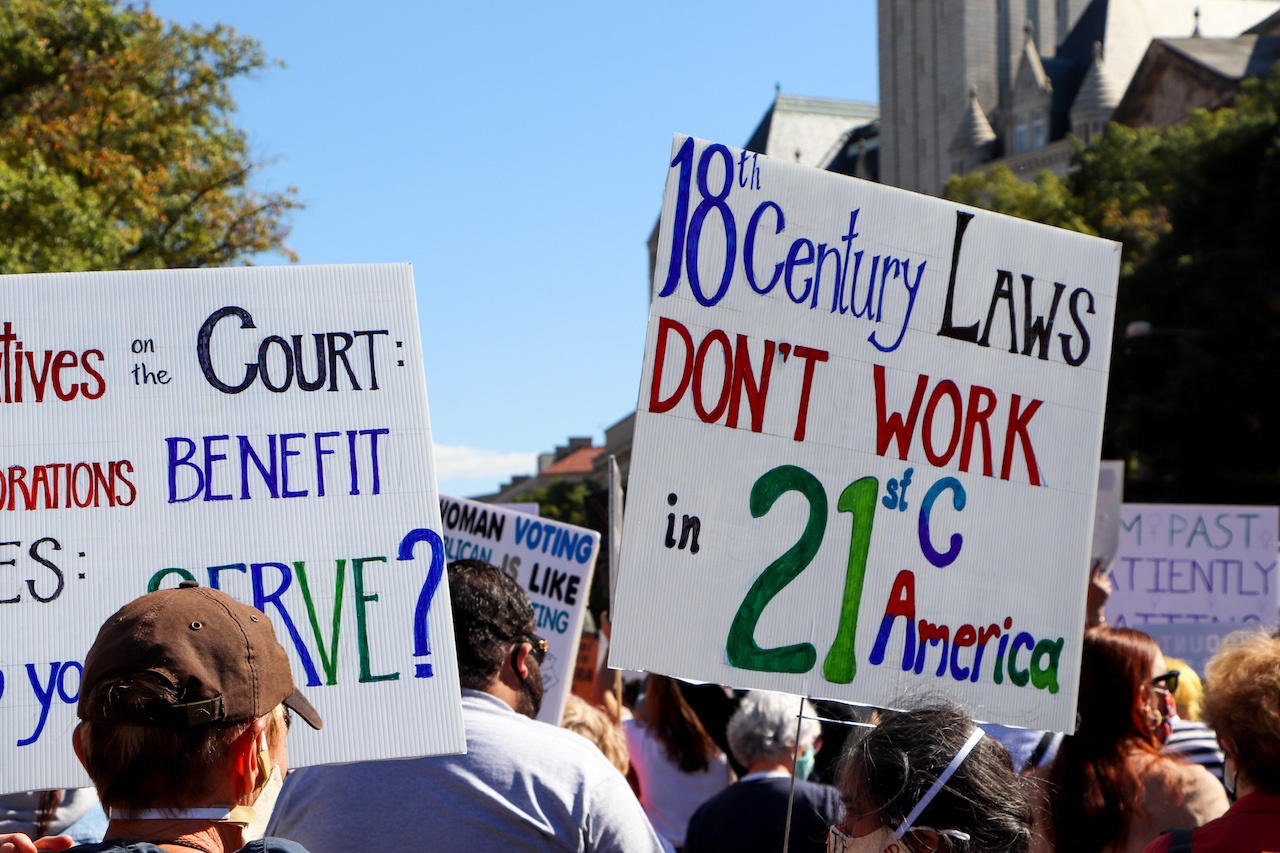




Protesters expressed reasons for marching through their signs. Some paid tribute to the late Ruth Bader Ginsburg, others advocated for women’s rights and many condemned the reelection of Donald Trump and Mike Pence. (Madison Muller/MNS)
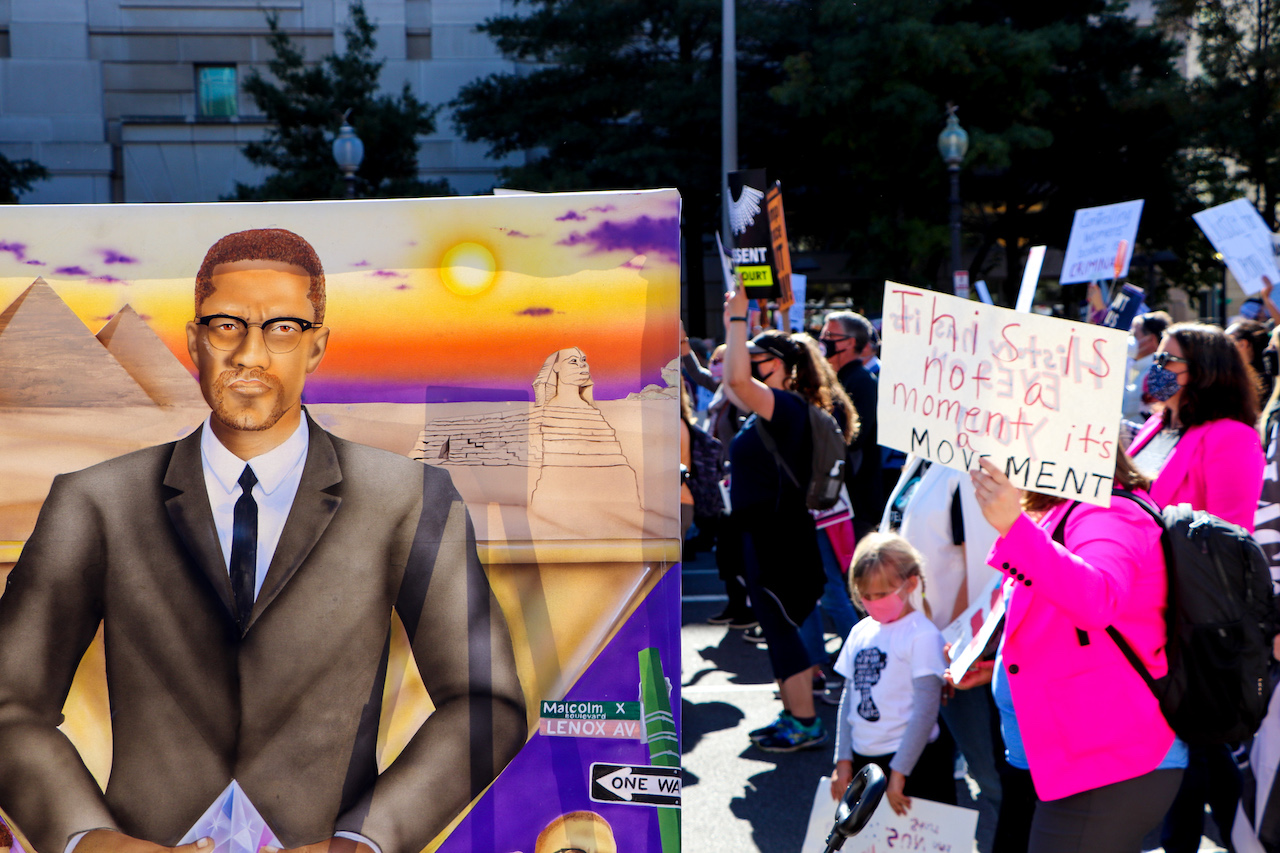
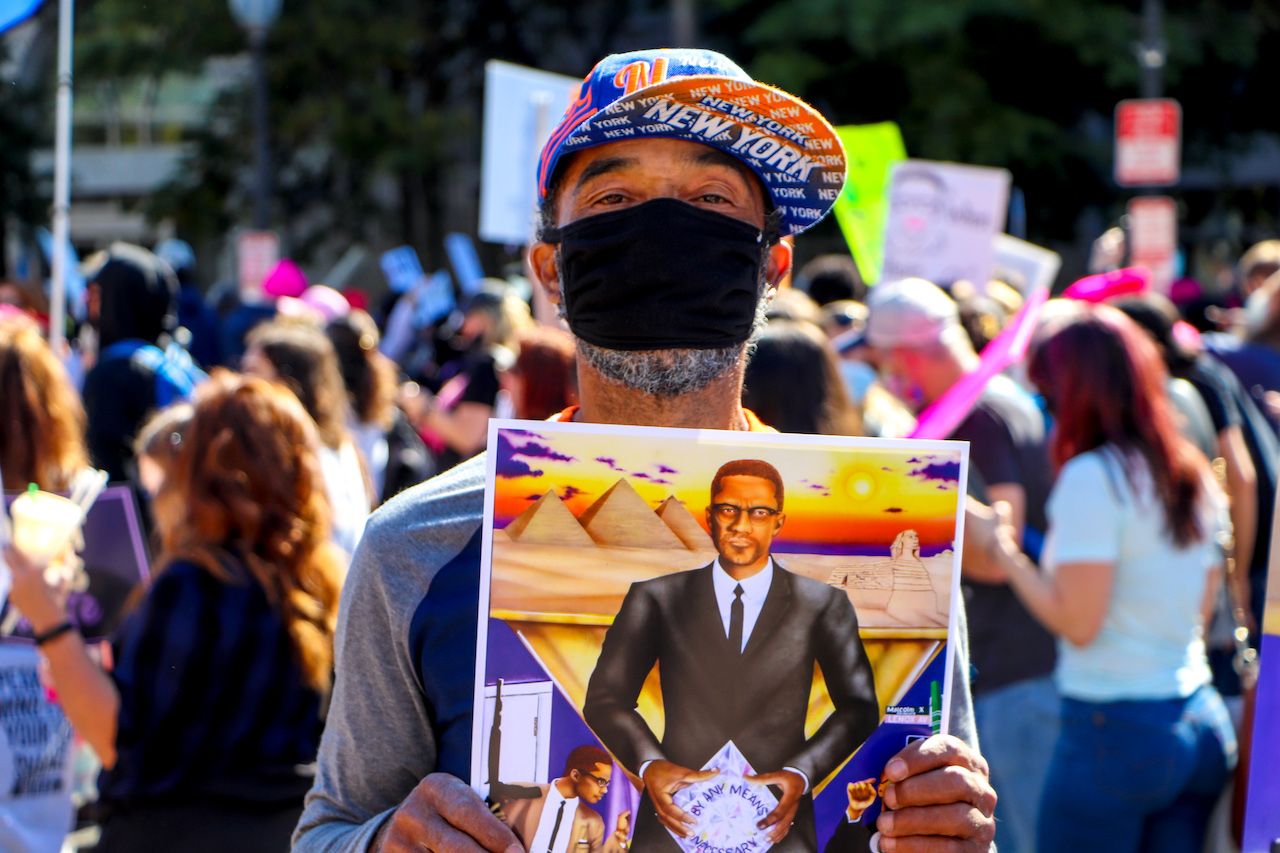
Terry K. Wilson, an artist from Indiana, traveled to D.C. to sell his art during the Women’s March.
“There’s a movement going in the country, and in the world, and I came here to show my Civil Rights pieces. I have been painting murals in my hometown of [victims of police brutality] on the boarded up windows.”
“This is probably one of the most important elections to make a change – make a change, like Obama said. Because we want to live our lives comfortably, too.”


Dismay for President Donald Trump was a common theme throughout the march. (Madison Muller/MNS)


Despite the pandemic, huge crowds gathered in D.C. to take part in the various Women’s March events happening throughout the day. (Madison Muller/MNS)
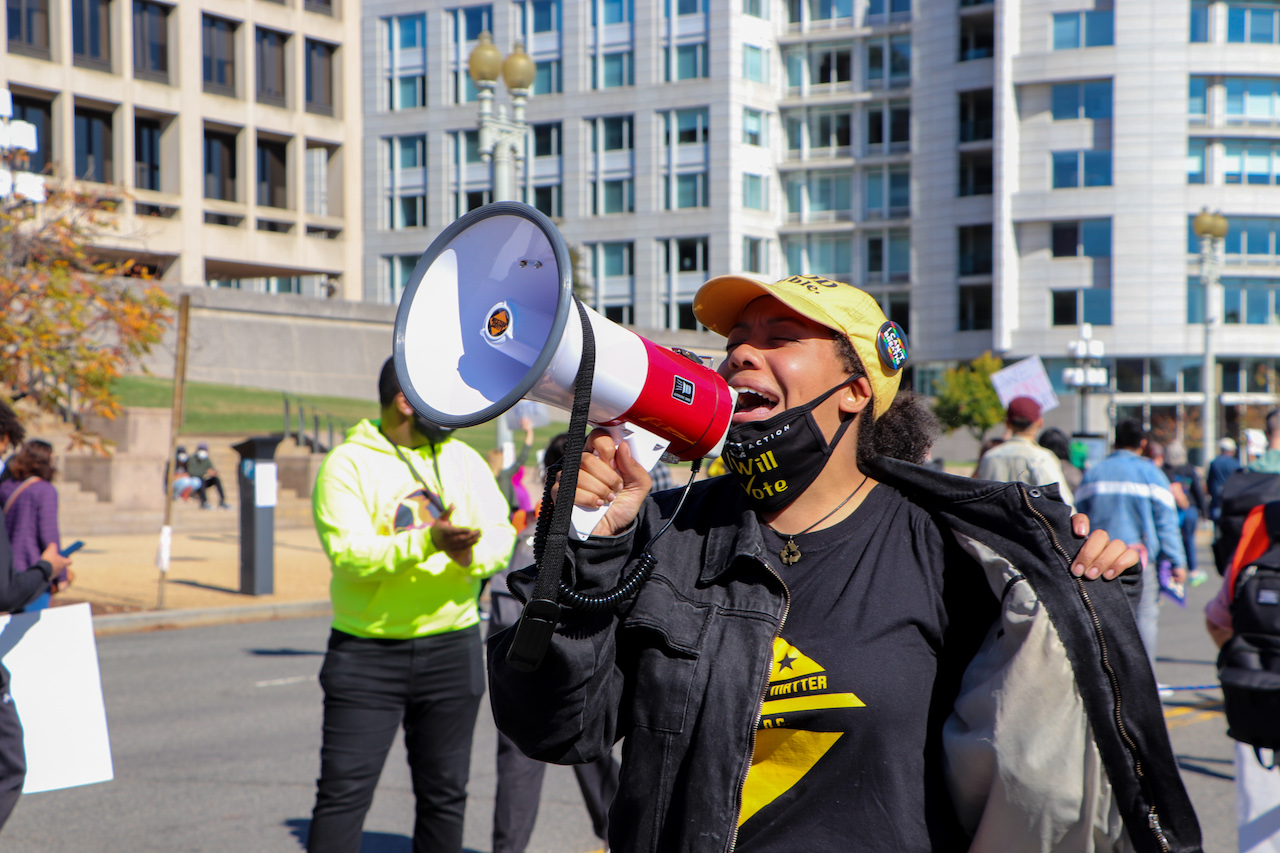
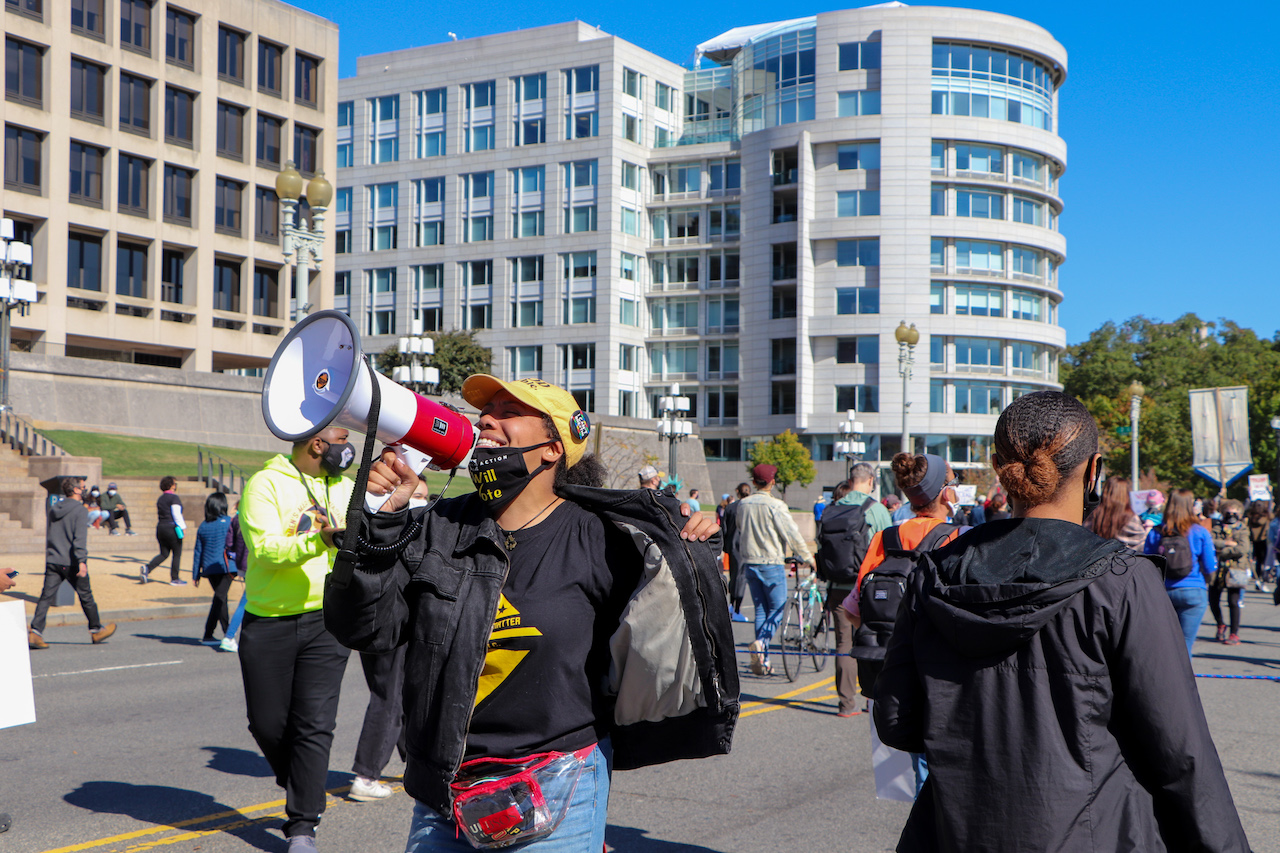

Local racial justice organizers were also present at the march. Saba, an organizer with Black Terps Matter and student at the University of Maryland – College Park, was back on the streets after being arrested for demonstrating outside the Senate Hart Building on Thursday. Kevin, an organizer with the Palm Collective, also led chants that emphasized the fight for Black lives. (Madison Muller/MNS)
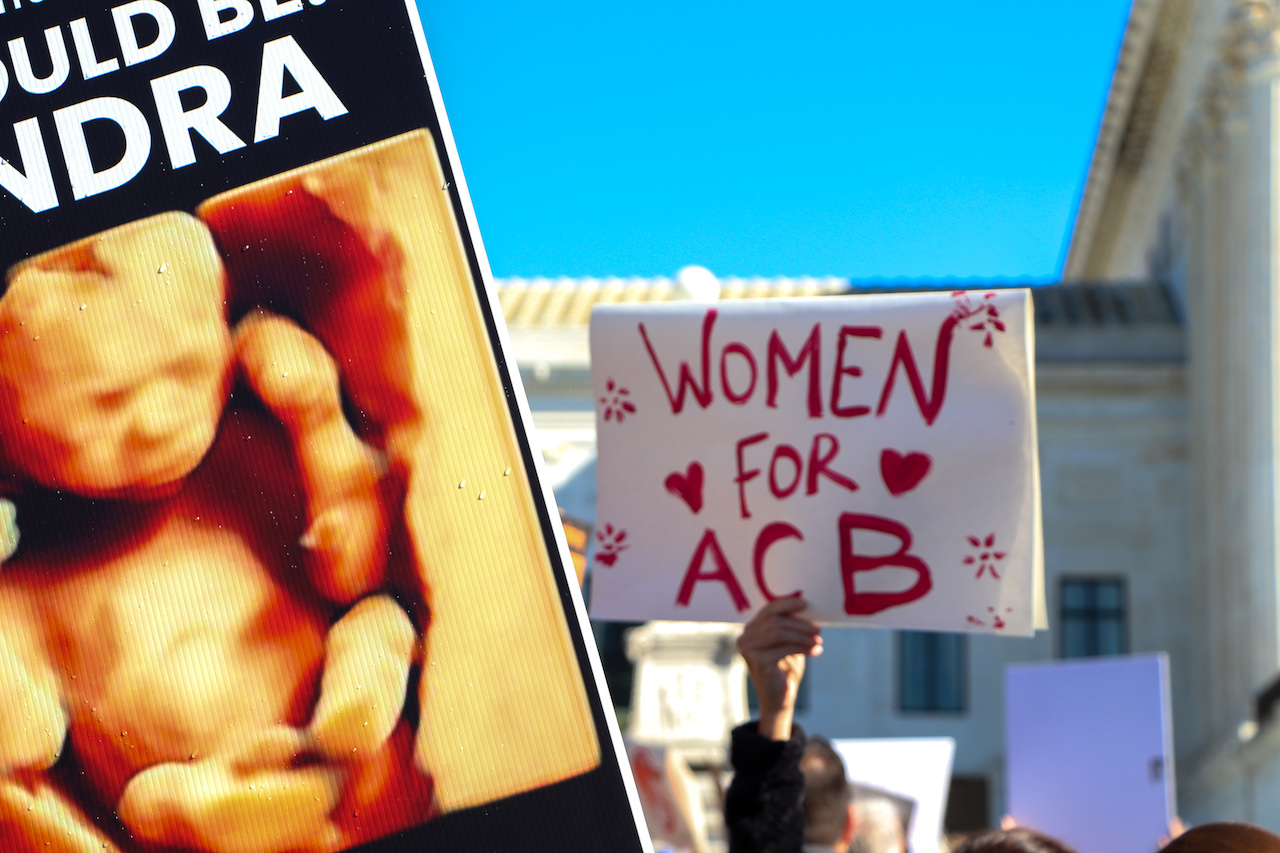
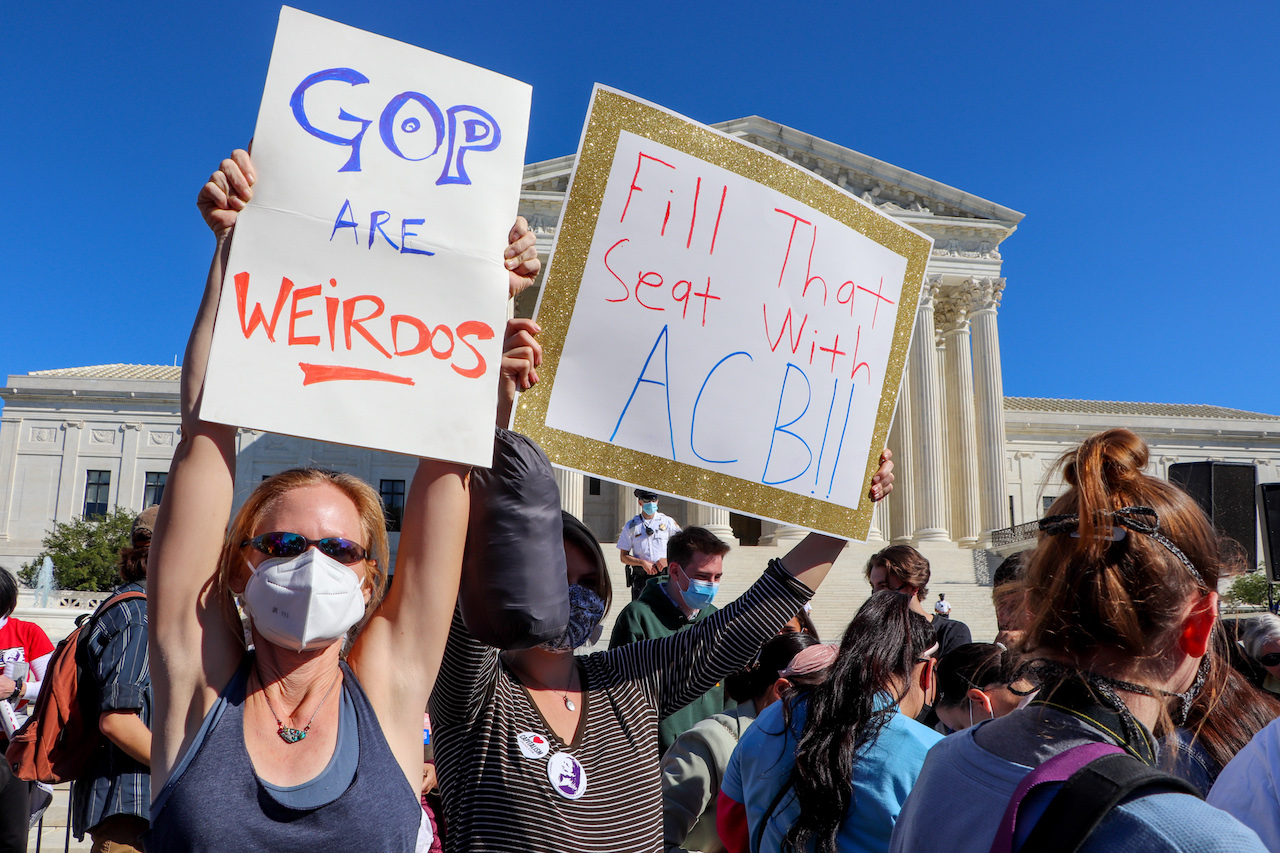

Outside the Supreme Court, Women’s March protesters were met by counter protesters who held signs supporting the confirmation of Amy Coney Barrett and condemning abortion. (Madison Muller/MNS)
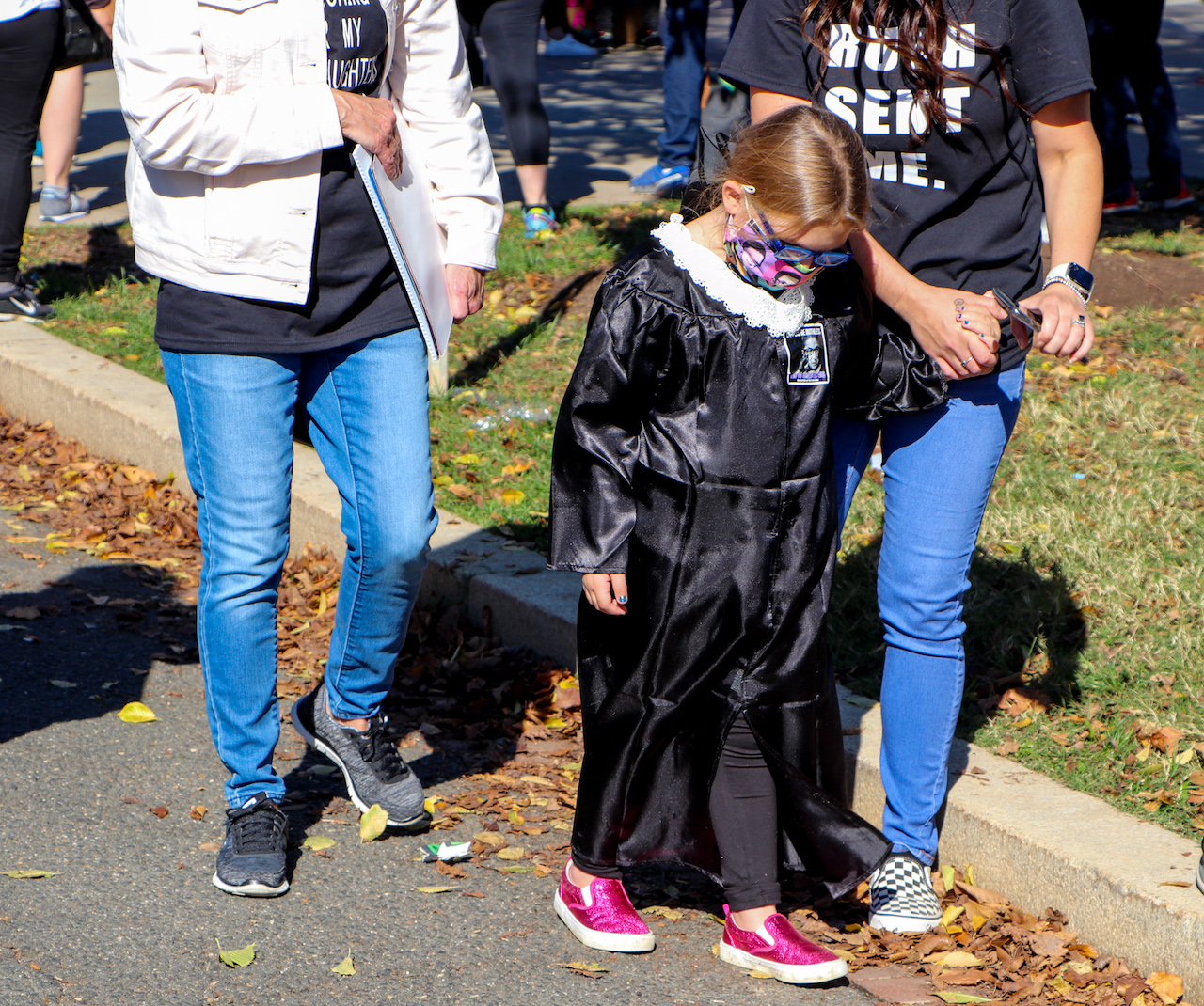
A young girl attends the Women’s March protest outside the Supreme Court in a Ruth Bader Ginsburg costume. (Madison Muller/MNS)

